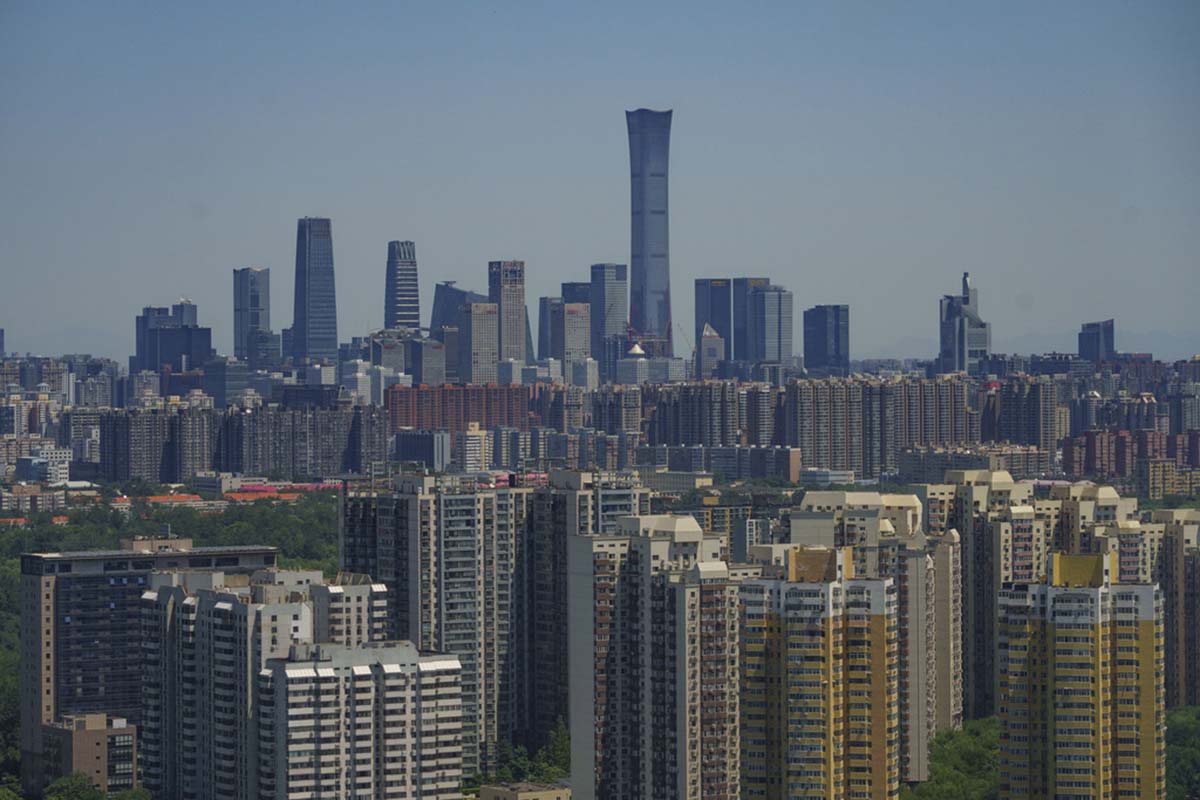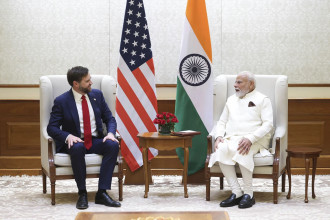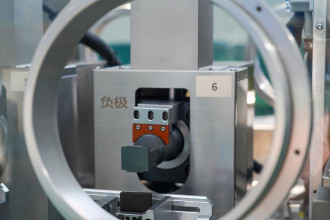
BANGKOK: In a year of major elections that will determine the destinies of many countries, China's ruling Communist Party is holding closed, top-level meetings in Beijing to set strategies for reviving its slowing economy.
State media likened the meetings that end Thursday to reforms started in the late 1970s that opened China's economy to foreign investment and private enterprise. State broadcaster CCTV said the agenda for this year's meetings is to study and endorse "all-around deepening reforms."
Nearly a half-century after the late leader Deng Xiaoping launched China's ascent as a manufacturing powerhouse, the party is doubling down on leader Xi Jinping's blueprint for technology- and national security-focused development. Economists say it's unclear if that will fix the chronic problems dragging on the economy, including a weak job market, massive local government debts and a prolonged slump in the property industry.
While those problems are mostly domestic headaches, the health of the world's second-largest economy has an impact way beyond its borders, affecting business activity, financial markets and job opportunities across the globe.
China's economy is still slowing
On Monday, the government reported that the economy grew at a 4.7% annual pace in the last quarter, down from 5.3% in January-March. In quarterly terms, it slowed to 0.7% from 1.5%.
Property sales fell nearly 27% for the year through June from a year earlier, and retail sales increased only 2% in June, the lowest level since the coronavirus pandemic.
Despite a cash-for-clunkers program and other initiatives launched this spring to coax people to replace old cars and appliances, vehicle sales sank 6.2% from a year earlier in June while sales of appliances and electronics dropped 7.6%.
Given the vital role housing plays in household wealth, "We expect retail sales will remain weak without fundamental improvement in the property sector," Raymond Yeung and other economists at ANZ Research said in a report.
China's people are keeping a tight rein on spending, wary of job losses, the minimal social safety net, costs for education and other risks. Economists say that without fundamental reforms that allow workers to retain more of the nation's wealth, consumer demand is likely to remain subdued.
The Communist Party's game plan
Since taking power in 2012, Xi has sought to strengthen the party's controls over business and society, launching crackdowns on corruption, the fast-growing technology sector and excess borrowing by property developers, and promoting his vision for a Chinese-style of "high-quality" development with heavy investments in advanced technology and clean energy.
It follows a "Made in China 2025" initiative that began in 2015 and is meant to transform the country from a maker of toys, furniture and other labour-intensive products into a top producer of high-tech goods. While China still lags behind the US in many critical areas, it has made huge strides in catching up.
Instead of heading overseas to buy fancy rice cookers and multifunctional toilet seats, the Chinese can now get domestically-made electric vehicles, home appliances and sophisticated sports gear. China now manufactures its own aircraft, electronics and advanced computer chips, the state-run Xinhua News Agency noted in a lengthy profile praising Xi's role as a reformer.
Xi has promised "strategic, innovative and leading reforms," Xinhua said, to "achieve new breakthroughs in important areas and key sectors."
But double-digit growth in the production of electric vehicles, solar panels and many other products is adding to concerns China is flooding foreign markets with products that can't sell at home. Meanwhile, exports have surged, growing nearly 9% in June in annual terms.
The Rhodium Group estimates that China's manufacturing trade surplus increased by $775 billion in 2019-23. The biggest impact was on advanced economies, like the United States. But smaller developing economies are also at a disadvantage, it said in a report, since "China's dominant position across so many product categories considerably limits the space for new entrants to emerge as new manufacturing powers."
Troubles ahead, troubles behind
Years ago, China began trying to nurture a stronger consumer economy and reduce reliance on exports and heavy investment projects that now are yielding lower and lower returns.
The crackdown on heavy borrowing by property developers like China Evergrande and Sino-Ocean Group, led to default on loans. Scores of projects went unfinished even after buyers had paid for the apartments.
The downturn in the housing market cut off a key funding source for local governments that relied on selling land-use rights to developers, at a time of heavy spending to fight Covid 19. Beijing faces as much as $11 trillion in local government debt, and investors are watching for moves by the central government to help resolve the problem.
Apart from leaving many in China feeling much worse off, the crisis cost millions their livelihoods, causing layoffs in many other industries as demand dwindled for cement, construction, appliances and home furnishings.
The deterioration in mood and consumer confidence is leading growing numbers of young Chinese to embrace what they call the "stingy economy," finding ways to get by on the least amount of money possible, or to just leave the country if they have the means to do so.
Policy dilemmas
Any fresh reforms or initiatives resulting from the plenum are bound to be within the parameters set by Xi's vision for China's future as a world technology power led by the century-old Communist Party.
Most recent moves to support the property market have involved fine-tuning: cutting down-payment requirements and interest rates on mortgages and freeing up financing for some property projects. In some cases, local governments are being urged to buy up unsold property to rent out as affordable housing.
At the same time, favoured initiatives such as Xi's model city south of Beijing, Xiong'an, are getting extra support while projects elsewhere have languished.
The party has made improving the business environment, trying to counter a downturn in foreign investment following the shocks of severe anti-virus policies during the pandemic. However, it continues expanding its hold on companies and financial institutions. Raids by authorities on offices of foreign companies, arrests of foreign business people and have left foreign businesses wary about the risks of running afoul of ever-tightening national security regulations.
Economist Li Daokui of Peking University and other economists say Beijing needs to reduce the debt burdens of local governments and increase central government spending to support growth. More substantial pensions and health insurance would free up more income for spending and generate more jobs.
Others are urging the government to pay subsidies to families, especially those with children. But such stimulus payments or other handouts are unlikely: in his calls to build "common prosperity," Xi has condemned what he called "the trap of 'welfarism' that encourages laziness."
By RSS/AP






